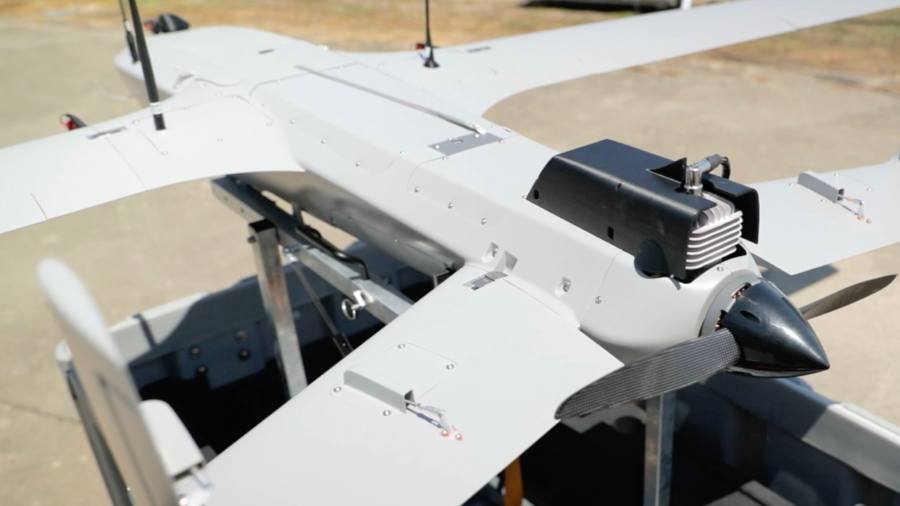
Receive free Drones updates
We’ll send you a myFT Daily Digest email rounding up the latest Drones news every morning.
A European drone specialist whose unmanned systems are being used in Ukraine is seeking to tap investor interest in cutting-edge defence technology with a €50mn fundraising this year.
Tekever, which is based in Portugal but also has operations in the UK, is among a clutch of drone manufacturers that have gained prominence because of the war in Ukraine. The company earlier this month secured funding through the UK-led International Fund for Ukraine to deploy its AR3 surveillance drones to Kyiv.
The AR3 is a small, long-endurance drone designed to provide wide-area surveillance for land and maritime missions. With a maximum take-off weight of 25kg it can fly at cruise speeds of 75-90km per hour for up to 16 hours and can carry a number of sensors, including cameras and radars. It can take off with a catapult and land with a parachute, or take off and land vertically.
Tekever was set up in 2001 with a primary focus on developing software, but decided to fully focus on drones in 2009, said chief executive Ricardo Mendes.
“We saw that it was a market primarily dominated at that time by defence players and defence technology. It was a world where everything took years to do . . . Our take was, this is a world where software will play a primary role.”
The company’s drones are purely for surveillance and reconnaissance missions. Its first customers included civilian agencies such as the European Maritime Safety Agency, as well as oil and gas groups. Tekever operates two types of business models; it is a service provider, offering its drones as a service through multiyear contracts, but it also sells them while providing maintenance.
It raised €20mn through a series A funding round led by UK-based investor Ventura Capital in 2022 but is looking to raise another €50mn this year to help fund its expansion.
The company is working with advisers and is “very keen on raising another funding round soon . . . it would make sense to raise at least €50mn, probably later this year”, said Mendes.
Tekever, he added, was already profitable and expected to grow more than 50 per cent this year, both in terms of revenues and earnings. It expected to manufacture more than 100 systems.
The war in Ukraine has become a showcase for the latest defence technology, notably drones, developed by smaller companies including America’s AeroVironment and Turkey’s Baykar. The success of their equipment on the battlefield has highlighted the disruption of defence procurement by innovative technologies such as sensors, robotics and artificial intelligence.
The Ukraine war, said Mendes, “validates the theory that even in the military world what the users actually need is agility”.
Drones, he added, “do not evolve with aerospace cycles. They evolve with computing cycles. A drone is essentially a computer that flies.”
Mendes echoed recent comments by Silicon Valley investors who urged the US government to overhaul its procurement process to enable more companies to take part.
“We need to move the procurement processes from processes that are designed to buy and operate something that was last decade’s technology into a model that allows for the next decade’s technology to be put in place,” he said.